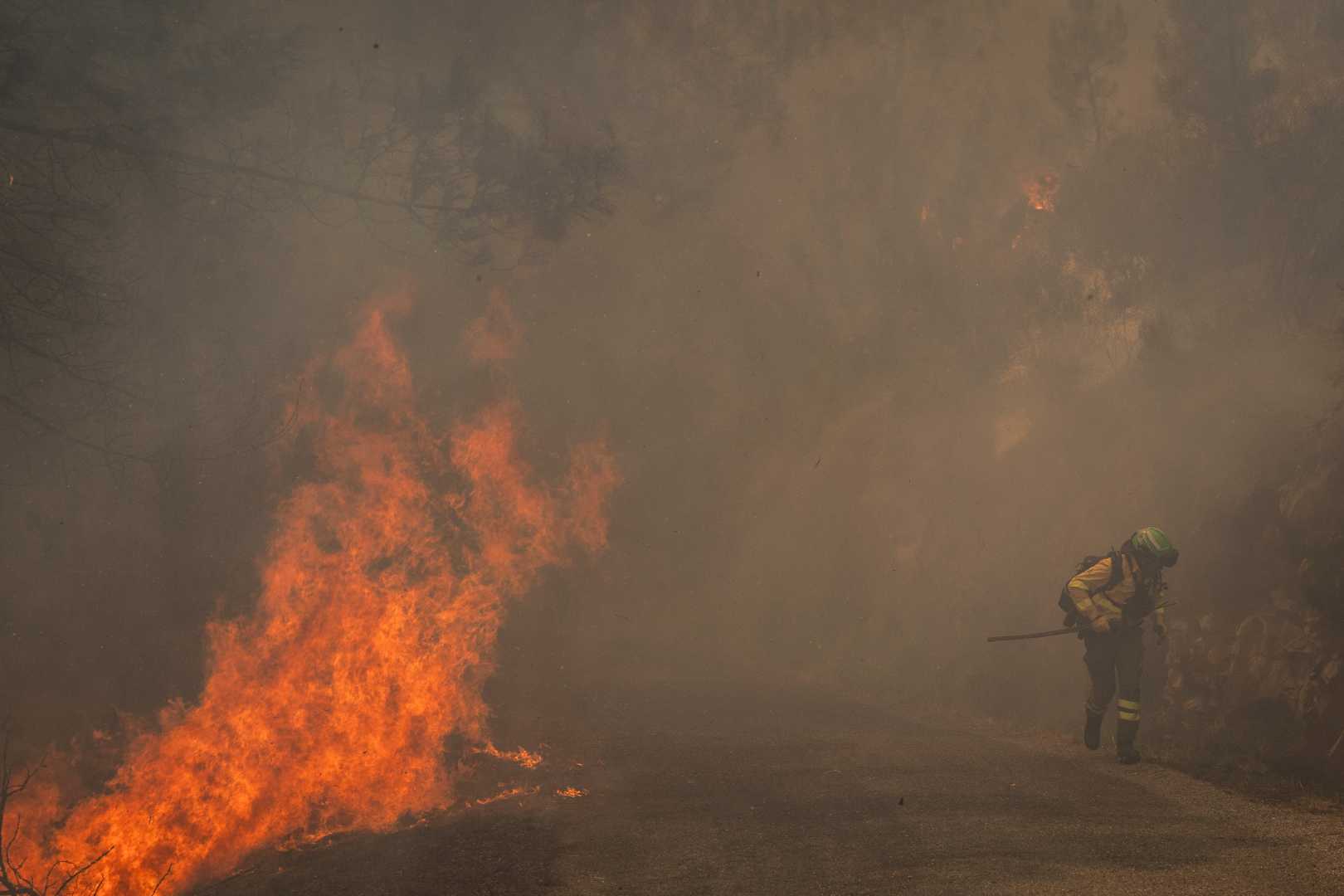News
Iberian Peninsula Wildfires Cause Unprecedented Emissions and Destruction

Madrid, Spain — The Iberian Peninsula is engulfed in wildfires that are now releasing the highest volume of emissions recorded in 23 years, according to the Copernicus Atmosphere Monitoring Service (CAMS). The crisis escalated in mid-August 2025 amid extreme heat conditions, impacting both Spain and Portugal.
As of August 19, wildfires in Spain have scorched over 382,000 hectares (944,000 acres), exceeding any previous year’s totals since records began in 2006. In Portugal, more than 347,000 hectares (857,000 acres) have burned, marking a significant increase from previous years.
Fire crews, supported by the Military Unit for Emergencies (UME), have been deployed across the two countries to battle approximately 20 active blazes in Spain and ten main fires in Portugal. The recent wave of fires has led to at least three fatalities and forced thousands from their homes.
Prime Minister Pedro Sanchez of Spain acknowledged the role of climate change in exacerbating fire risks while reporting that temperatures in some areas soared above 44°C (111°F) during the heatwave. “Science tells us that the climate is changing, and so does common sense,” he stated.
Air quality in the region has drastically declined, with fine particulate matter (PM2.5) levels rising far above the World Health Organization guidelines, affecting areas hundreds of kilometers away from the flames. The smoke has even spread across borders to France, the United Kingdom, and Scandinavia.
Portugal declared a state of emergency on August 2, with escalating fire activity leading authorities to mobilize over 5,000 firefighters. Data from CAMS indicates that the country’s wildfire emissions are nearing levels recorded during previous catastrophic years.
In France, summer heatwaves have also fueled wildfires, with the worst fire in southern Aude burning 17,000 hectares. Fires are not only limited to the Iberian Peninsula; regions across Greece, Italy, Turkey, and the Balkans have reported significant wildfire activity this season.
Experts are linking the increase in fire activity to climate change, highlighting how the dry and hot conditions create perfect environments for the rapid spread of wildfires. Lorenzo Labrador, a scientist at the World Meteorological Organization, noted that the situation reflects a worrying trend of increasing fire intensity and frequency.
The fires are not just an environmental concern but also a humanitarian crisis as thousands lose their homes and communities are devastated. The combined total of area burned across Europe this year has so far outstripped the averaged figures for the last 19 years, with over 439,568 hectares burnt.
As firefighters continue to battle the blazes, the immediate focus remains on controlling the fires, while the long-term implications of climate change continue to loom large over the region.












